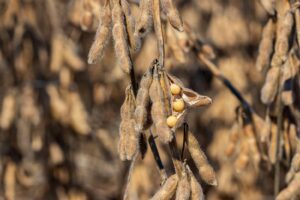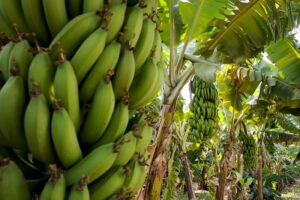
Revealed: English farmers received record-high flood relief after last winter’s extreme rain
Orla Dwyer
12.12.24Orla Dwyer
12.12.2024 | 2:18pmEnglish farmers received tens of millions of pounds more in flood-relief funding in 2024 than in any year over the past decade, following intense rainfall last winter.
The Department for Environment, Food and Rural Affairs (Defra) recently paid £57.5m from the farming recovery fund to farmers who were hit by extreme rain and floods between October 2023 and March 2024.
This is 75 times more than the amount paid out the last time the fund opened to applicants, which was £768k in 2020, according to figures released to Carbon Brief.
It is also more than six times higher than all of the payments dispersed between 2015 and 2020, which totalled £9.4m.
Between October 2022 and March 2024, England experienced its wettest 18-month period since records began in 1836, according to Met Office data
In 2024, the country had its second-worst harvest in four decades for key crops such as wheat, barley and oats, according to the thinktank the Energy & Climate Intelligence Unit (ECIU).
Rachel Hallos, the vice chair of the National Farmers’ Union, welcomes the “long-awaited” payments for last winter’s flooding, but tells Carbon Brief that farmers now face “further devastation in the midst of a new storm season”.
The fund is a “sticking plaster to a much wider problem” facing agriculture, says Alice Groom, the head of sustainable land use policy at the Royal Society for the Protection of Birds.
Record-breaking rain
The farming recovery fund provides one-off emergency payments to farmers impacted by flooding in England. It opened for the first time in 2014 and has re-opened four times since: in 2015, 2019, 2020 and 2024.
The money is intended to help cover the cost of actions to restore flooded land that are not already covered by insurance, such as soil remediation and removing debris.
The fund opened in April this year for farmers hit by last year’s winter flooding.
In October 2023, Storm Babet damaged crops and left “entire fields…submerged in water” across the UK, reported the Guardian. In January 2024, Storm Henk flooded thousands of acres of crops and farmland.
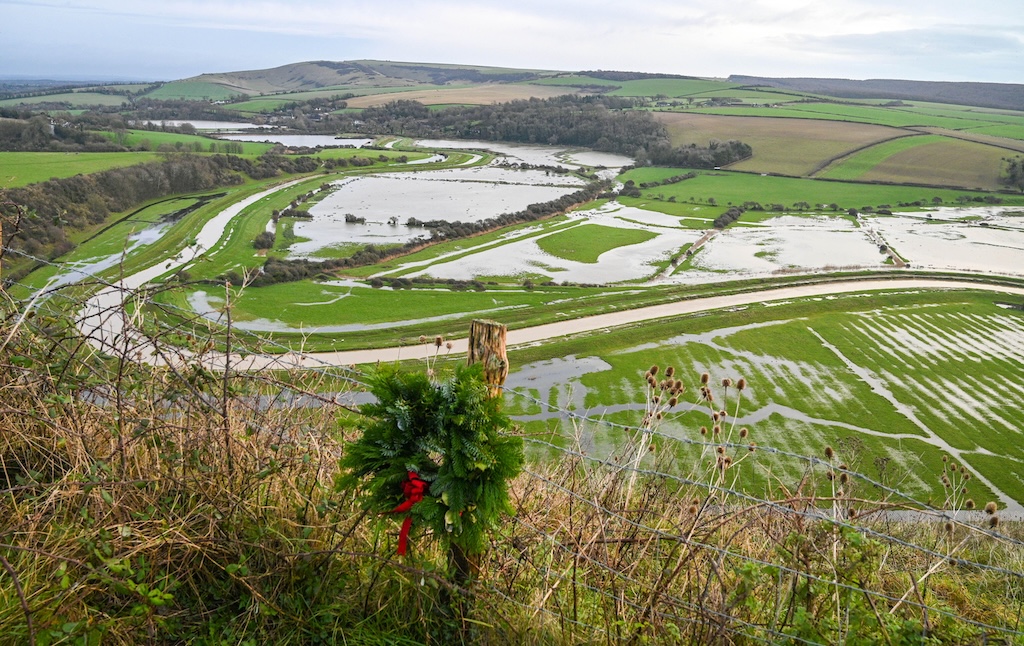
Up to September 2024, £2.2m had been paid out under the fund, according to figures released to Carbon Brief via an Environmental Information Regulations request. This was followed by £57.5m in November, Defra said in a press release.
Carbon Brief received figures showing the total annual payments under the fund since 2015, outlined in the table below. The amount for 2024 is the combined total figures from the request and Defra’s press release.
| 2015 | 2019 | 2020 | 2024 |
| £8,002,300 | £636,271 | £767,628 | £59,662,885 |
October 2023 to March 2024 was the wettest winter half-year period in England since records began in 1836, the Environment Agency said.
Climate change made this record rainfall in the UK and Ireland about 10 times more likely to occur, according to a rapid attribution study.
The extent and significance of extreme weather impacts on farms during this time led to the increased budget for the farming recovery fund in 2024, Defra says.

The fund ran into controversy earlier this year after thousands of farmers waited months to receive their payments.
Extreme weather over the past couple of years has “time and time again render[ed] farmland completely saturated and unusable”, says Rachel Hallos, the vice president of the National Farmers’ Union (NFU). She tells Carbon Brief:
“While it’s welcome news that over £57 million in long-awaited farming recovery fund payments has been paid out to farmers, many of our members are only now receiving this support for events that happened over a year ago.
“Yet here we are, facing further devastation in the midst of a new storm season. We also still have members badly affected by the storms last winter who are unsure why they are not eligible for support.”
Fund breakdown
Between 2015 and 2020, around £9.4m was paid out under the farming recovery fund.
The fund opened for the first time in February 2014 with a £10m budget allocation. This year did not fall into the scope of Carbon Brief’s figures, but Farmers’ Weekly reported at the time that less than £530,000 had been paid out by May 2014.
The fund re-opened in December 2015 to help farmers hit by Storm Desmond, which flooded swathes of the UK and Ireland, bringing heavy rainfall and intense winds.
In England, the north of the country was worst affected. The fund was available for flood-hit farmers in Cumbria, Lancashire and Northumberland who had suffered “uninsurable losses” to apply for grants of £500-£20,000.
Just over £8m was paid out under the fund that year, the figures show. Farmers in east Cumbria received the biggest portion (£2.8m), followed by west Cumbria (£1.9m) and north Yorkshire (£1.4m).
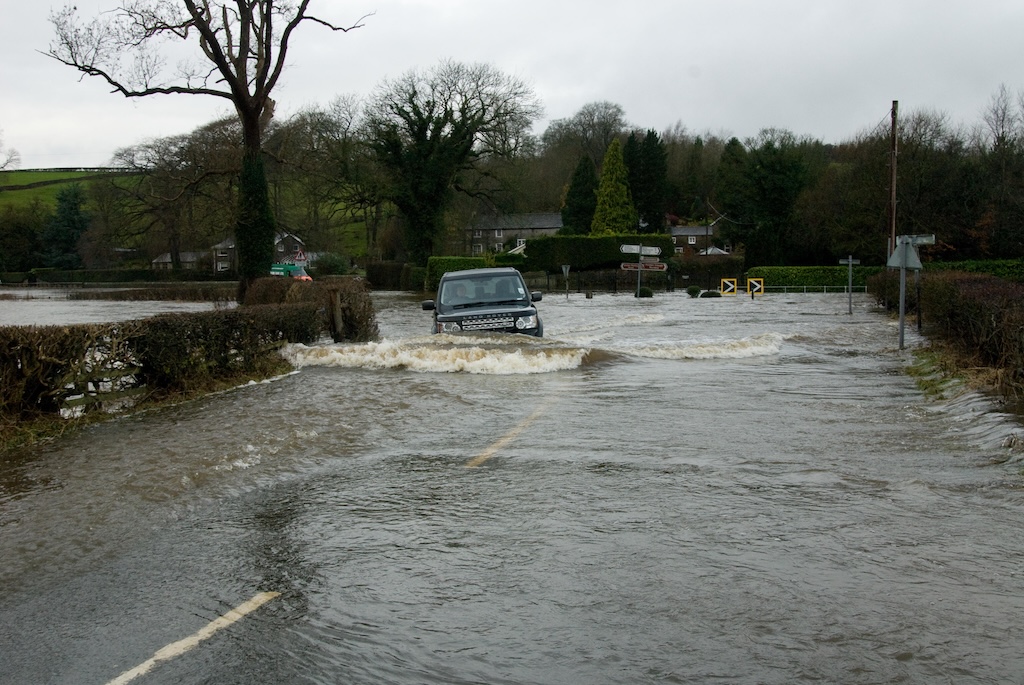
The fund re-opened in September 2019 to help farmers affected by summer flooding. Hundreds of homes were evacuated in Lincolnshire after severe flooding in June. Flash floods hit other parts of the country throughout the year, including North Yorkshire in July.
The fund was available for farmers in parts of North Yorkshire and Lincolnshire to apply for grants worth £500-£25,000. This was extended to cover flood-hit farmers in more parts of the country in November.
In 2019, just over £636,000 was awarded to farmers. North Yorkshire received the biggest chunk of funding – around £270,000.
The fund opened again in June 2020 for farmers impacted by floods in February that year. At this stage, Defra said £10m had been allocated for farmers hit by floods in 2019-20.
However, according to the figures released to Carbon Brief, just under £768,000 was spent in 2020. This means that from 2019-20, around £1.4m was paid out – significantly below the total budget.
Defra confirms that 250 farmers were paid out through the fund in 2019-20. The department says the disparity between fund allocation and payouts was due to the budget being set before assessing the extent of the impacts from the weather extremes.
No money was given out under the fund from 2016-2018 and 2021-2023, the Environmental Information Regulations response shows.
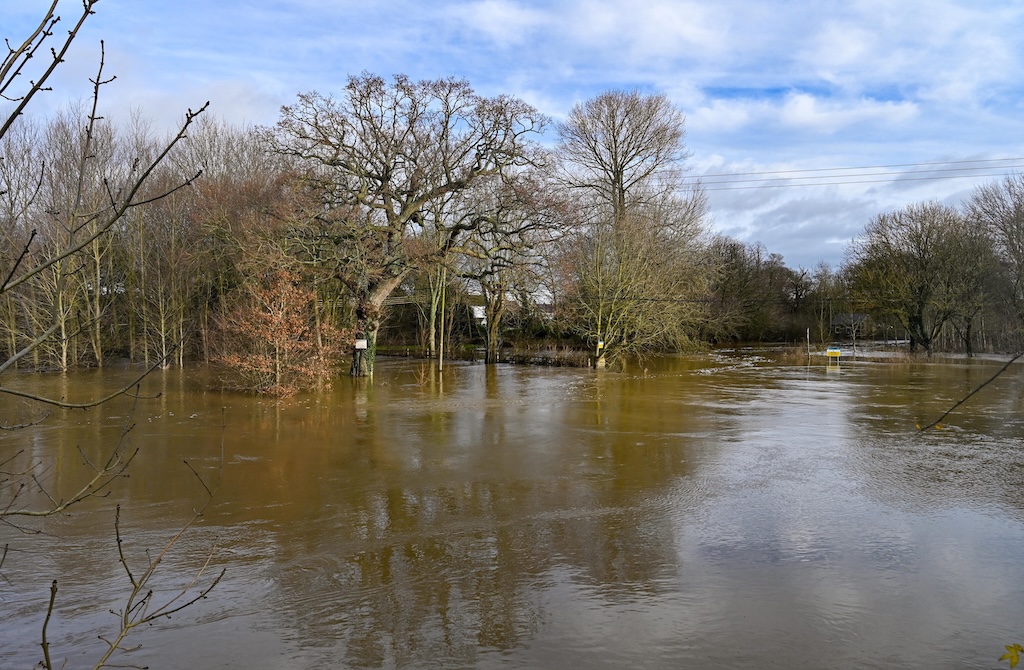
The fund lay dormant until April 2024, when it re-opened for farmers hit by winter flooding, including storms Henk and Babet. The fund was then expanded further in May and the then-Conservative government allocated £50m towards the fund – significantly more than payouts in previous years. (The new Labour government increased this again to £60m.)
The payments under the fund – previously set between £500-£25,000 – also rose to £2,895-£25,000, depending on the size of land and the amount affected by floods.
The figures show that almost £2.2m was paid out to farmers between January and September this year. A Defra statement said that more than 12,700 payments, worth £57.5m, were sent to farmers in November. As a result, the combined 2024 total was at least £59.7m – just below the £60m budget.
Defra did not comment directly on the figures when contacted by Carbon Brief, but pointed to a November press release. In this, the farming minister Daniel Zeichner says the farming recovery fund payouts, along with Labour’s farming budget, “demonstrates this government’s steadfast commitment to farmers”.
Future of farming
Extreme weather last winter “created havoc for farmers, making it much harder to establish and manage crops”, says ECIU land, food and farming analyst Tom Lancaster. He tells Carbon Brief:
“It’s right that [the] government should support farmers to rebuild from these impacts, but this strategy will quickly become unaffordable as the impacts of climate change take hold.”
Heavy rainfall and other weather extremes occur more frequently and more intensely as a result of climate change, according to the Intergovernmental Panel on Climate Change.
Earlier this year, Carbon Brief analysis found that the average UK winter has become around 1C warmer and 15% wetter in the past century. Four of the top 10 rainiest winters in recorded history have occurred in the 21st century.

More widely, farmer “confidence” has taken a hit, according to NFU surveys. The Guardian reports that income for almost every type of farm fell in England last year.
More than 10,000 farmers also protested against inheritance tax changes in London in November. Demonstrators gathered again on 11 December, with hundreds of tractors blocking central London streets.
Extreme weather continues to have a “significant effect” on UK food production, especially arable crops, fruits and vegetables, according to Defra’s food security report published this week.
Alice Groom, the head of sustainable land-use policy at the Royal Society for the Protection of Birds, says the farming recovery fund is a “sticking plaster to a much wider problem”. She tells Carbon Brief:
“As we see the effects of the climate crisis undeniably worsen, farmers need support in equal measure to farm in a climate and nature friendly way to boost their businesses’ resilience.
“We, therefore, need ambitious packages of support for farmers from [the] government that go beyond managing the effects of climate change and instead build climate resilience and nature into the very core of our farming systems for the benefit of us all.”
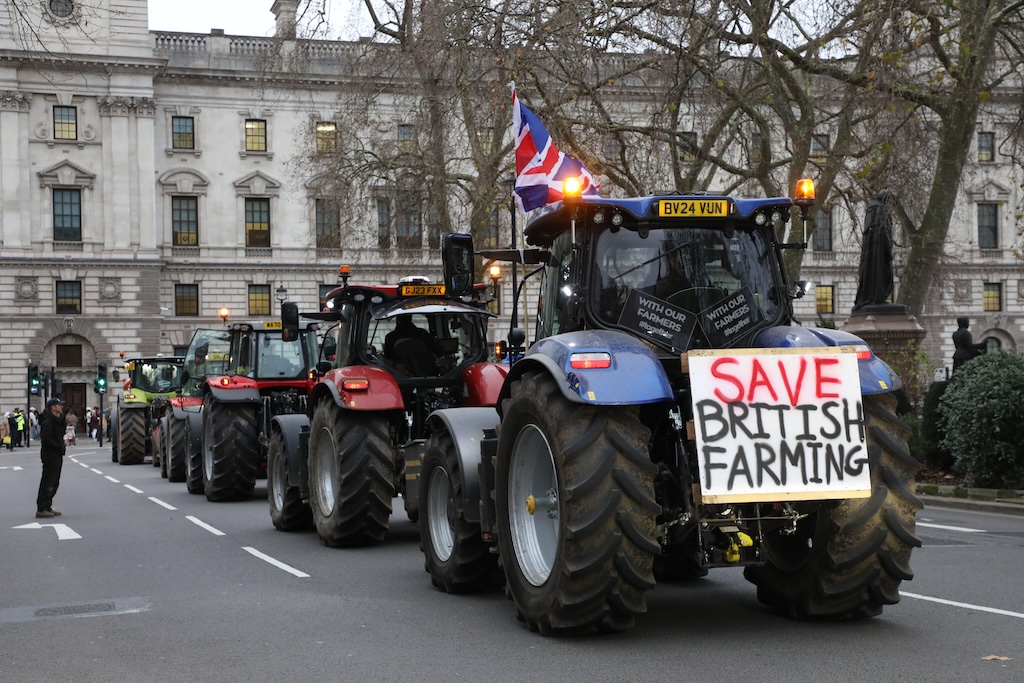
Earlier this week, the RSPB was among dozens of NGOs and campaigners who wrote to Defra secretary Steve Reed urging him to “act quickly” on reforming farm subsidies and tackling “supply-chain injustices”.
Hallos, the NFU’s vice president, tells Carbon Brief:
“These increasingly frequent extreme weather events demonstrate that we cannot keep getting stuck in this reactive cycle – we simply must invest in our water management systems.
“The farming recovery fund is one part, but we need [the] government to invest in a long-term plan for how we protect our towns and countryside from what is becoming more regular, and expensive, flooding events.”
Lancaster from the ECIU tells Carbon Brief that a “better approach” to supporting farmers is building “resilience to these extreme events, an area where the government’s new green farming schemes will be vital”.
-
Revealed: English farmers received record-high flood relief after last winter’s extreme rain


